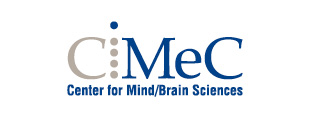Overview | Research directions | Members | Publications | Ongoing Collaborations
Overview
The Molecular and Cellular Cognition (mc²) group is dedicated to investigating the molecular and cellular components of cognitive processes. The research is mainly focused on the molecular bases of social cognition and their link to neurodevelopmental disorders, using a combination of behavioral, neurobiological and molecular techniques.
Research directions
- Biological predispositions in chicks: molecular and cellular mechanisms and link to neurodevelopmental disorders.
Biological predispositions to attend to visual cues guide social behaviour from the first moments of life and have been documented in human neonates, infant monkeys and domestic chicks. Using embryonic exposure to valproic acid (VPA), an anticonvulsant associated to increased risk of developing autism spectrum disorders (ASD), widely used to induce ASD core symptoms in animal models, we modelled ASD behavioural deficits in domestic chicks. To shed light on the molecular and cellular mechanisms of social predispositions and their lack of expression in VPA-treated chicks we investigate:- changes in specific neurotransmitter systems, in particular the serotonergic and dopaminergic neurons, at cellular and molecular level;
- epigenetic changes in specific gene networks associated with social cognition;
- global, behaviourally-induced, epigenetic and gene expression changes associated to social predispositions and their lack of expression in VPA-treated chicks.
- Development of novel strategies for genome editing in domestic chicks
Domestic chicks have been widely used to study molecular mechanisms of brain development with classical embryological experiments. Using a combination of the newly-developed genome editing techniques (CRISPR/Cas9) and classical embryology approaches we aim at developing new genetic model of neurodevelopmental disorders in domestic chicks.
Members
- Paola Sgadò, Principal Investigator
- Alice Adiletta, PhD Student
- Alessandra Pross, Research Fellow
Past Members
- Elena Perina, Master Student
- Emma Vicamini, Master Student
- Nicolò Giordano, Master Student
- Mariam Kareli, Master Student
- Francesca Moramarco, Master Student
- Alessia Musa, Master Student
- Francesca Marchetti, Master Student
- Gabriella Giunta, Postgraduate internship
- Raffaele Specogna, Master Student
- Nicolò Tarrico, Research Assistant
- Samantha Pedrana, Master Student
- Chiara Spiazzi, Master Student
Publications
For a complete list see Paola Sgadò personal page
Grants
Behavioural, molecular and neuroanatomical characterization of two models of autism in domestic chicks and zebrafish, Program Bando PRIN 2022 - Decreto Direttoriale n. 104 del 02-02-2022, project code 2022LJZRBY, CUP E53D23008910006

Ongoing Collaborations
- Dr. Jacopo Lamanna, Vita-Salute San Raffaele University, Milan, Italy
- Prof. Davide Zoccolan, International School for Advanced Studies (SISSA), Trieste, Italy
- Prof. Benjamin Schusser, Technical University of Munich, Germany
- Dr. Elisabetta Versace, Queen Mary University of London, UK
- Prof. Toshiya Matsushima, Faculty of Science, Hokkaido University, Japan
- Dr. Margherita Marzoni Fecia di Cossato, University of Pisa, Italy

